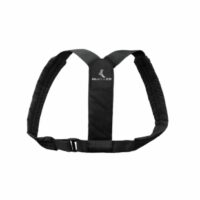Shoulder Pain
Article by John Miller

Shoulder Pain
What Causes Shoulder Pain?
Shoulder pain can be caused by various conditions, from injuries to overuse. As one of the most mobile joints in the body, the shoulder is susceptible to conditions like rotator cuff tears, bursitis, dislocations, and frozen shoulder. Physiotherapy offers a comprehensive approach to relieving shoulder pain and restoring normal movement.
Read more on Shoulder Pain Causes
Why Does Shoulder Pain Occur?
The shoulder joint’s complex structure and high range of motion make it prone to injuries and other issues. These include muscle imbalances, weakness, or abnormal movement patterns, which can lead to conditions like rotator cuff tears or bursitis. Repetitive motions from activities such as sports or manual labour often contribute to shoulder pain.
How Does Shoulder Pain Develop?
Shoulder pain can arise suddenly from traumatic injuries such as fractures or dislocations, which need immediate attention. Chronic conditions like tendinopathies or frozen shoulder develop gradually and can worsen without early intervention. These problems often result from ongoing strain, poor posture, or previous injuries that haven’t fully healed.
Read more on Rotator Cuff Injuries | Read more on Shoulder Bursitis
What Can Be Done About Shoulder Pain
Physiotherapy is one of the most effective treatments for shoulder pain. Tailored exercises improve strength and mobility, while manual therapy helps reduce tension and inflammation. Early diagnosis and consistent treatment are key to preventing chronic issues.
Read more on shoulder physiotherapy
Common Shoulder Injuries
Rotator Cuff Injuries
Rotator cuff syndrome affects shoulder mobility and can cause significant pain. Treatment often includes exercises to strengthen and improve the flexibility of shoulder muscles.
Read more on Rotator Cuff Injuries
Shoulder Bursitis
Shoulder bursitis causes pain and impingement. Managing this condition typically involves reducing inflammation and restoring normal shoulder function through physiotherapy.
Read more on Shoulder Bursitis
Shoulder Dislocations and Instability
Dislocations can lead to instability and recurring issues. Physiotherapy focuses on strengthening the surrounding muscles to prevent future dislocations.
Read more on Shoulder Dislocations
Frozen Shoulder
Also known as adhesive capsulitis, frozen shoulder causes stiffness and pain. Treatment aims to restore normal movement and reduce discomfort.
Shoulder Fractures
Fractures require careful management to ensure proper healing and restore shoulder function. Physiotherapy is key in the recovery process.
Read more on Shoulder Fractures
Shoulder Arthritis
Arthritis in the shoulder can limit mobility and cause pain. Physiotherapy helps manage symptoms and improve joint function.
Consulting a Shoulder Physiotherapist
Physiotherapists provide personalised treatment plans to address specific shoulder conditions. They guide patients through rehabilitation exercises to alleviate pain and improve shoulder function.

New Research in Shoulder Physiotherapy
Recent studies demonstrate the effectiveness of physiotherapy in treating shoulder conditions. Research suggests that a combination of exercise programs and manual therapy provides the best outcomes for long-term recovery and preventing re-injury. A systematic review highlights that early intervention and targeted exercises offer the best chance for recovery (Pieters et al., 2020).
Read more on Recent Shoulder Research
Conclusion: Take Control of Your Shoulder Health
Shoulder pain can significantly impact your daily life, but physiotherapy provides a path to recovery. By addressing both the cause and symptoms of shoulder pain, physiotherapy treatments help restore function and prevent future issues.
What to Do?
If you experience ongoing shoulder pain, consult a physiotherapist or doctor for a comprehensive assessment and treatment plan.
Rochedale - Call 38410277
Book Online: RochedaleSalisbury - Call 32751044
Book Online: SalisburySandgate - Call 32691122
Book Online: SandgateShoulder Pain FAQs
- Why does my shoulder hurt? Shoulder pain can result from injuries, overuse, or conditions like bursitis and rotator cuff tears. It’s crucial to identify the underlying cause for effective treatment. Read more: Shoulder Pain Causes
- How can I relieve shoulder pain? Physiotherapy treatments such as manual therapy, strengthening exercises, and patient education are effective in reducing pain. Read more: Shoulder Pain Physiotherapy
- What is the best exercise for shoulder pain? Targeted exercises, including stretches and resistance training, help restore mobility and strength. Your physiotherapist can create a tailored program. Read more: Shoulder Pain Exercise Programs
- Can shoulder pain go away on its own? While minor pain may improve with rest, ongoing pain often requires professional intervention for complete recovery. Read more: Shoulder Pain Treatments
- What should I avoid with shoulder pain? Activities that worsen the pain should be avoided. A physiotherapist can guide you on safe exercises and movements. Read more: Shoulder Pain Management
- When should I see a physiotherapist for shoulder pain? If pain persists for more than a week or impacts daily activities, it’s essential to consult a physiotherapist. Read more: Shoulder Physiotherapy
- Who treats shoulder pain? Physiotherapists treat musculoskeletal issues, including shoulder pain. They offer personalised treatment plans.
- Where is shoulder pain felt? Pain can be felt in the front, side, or back of the shoulder, depending on the condition. For example, rotator cuff injuries often cause pain at the side.
- What causes shoulder pain during sleep? Poor sleeping positions or existing conditions like shoulder impingement can cause pain at night. Adjusting your sleep posture may help. Read more: Shoulder Impingement
- How long does shoulder pain last? Shoulder pain duration depends on the cause and treatment. With proper care, many people recover in weeks to months. Read more: Shoulder Pain Recovery
Read more on Shoulder Pain FAQs
Related Articles on Physioworks
- Rotator Cuff Injuries – Discover treatments and exercises for rotator cuff syndrome.
- Shoulder Bursitis – Learn about the causes and management of shoulder bursitis.
- Shoulder Dislocations – Understand the symptoms and treatments for shoulder dislocations.
- Frozen Shoulder – Find out about symptoms and treatments for frozen shoulder.
- Shoulder Fractures – Get insights into the types of shoulder fractures and recovery processes.
- Shoulder Arthritis – Explore how arthritis affects the shoulder and ways to manage it.
- Shoulder Treatment – Learn how a physiotherapist can help with shoulder issues.
- Recent Research in Physiotherapy – Latest findings in physiotherapy for shoulder conditions.
- Exercise Programs for Shoulder Pain – Effective exercise programs tailored for shoulder pain relief.
- Shoulder Pain and Common Shoulder Problems – Discusses various shoulder problems and their management.













































































